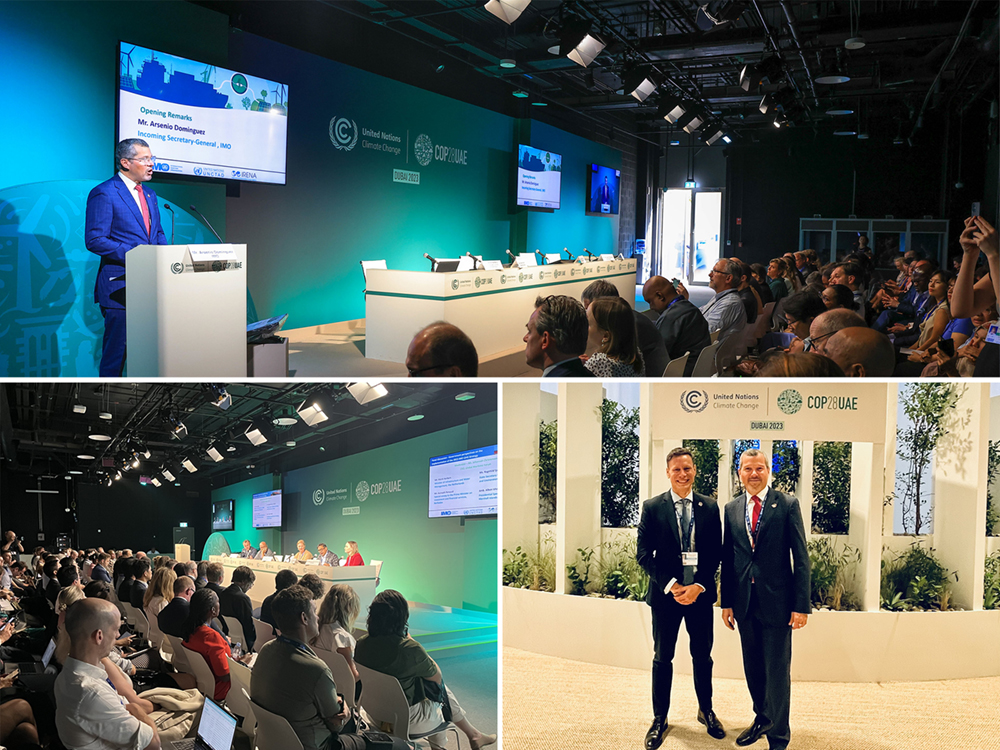The 2023 IMO Strategy on Reduction of GHG Emissions from Ships has been applauded by international stakeholders at the recent UN Climate Change Conference COP28 held in Dubai, United Arab Emirates.
During a side event co-hosted on 9 December by IMO, the United Nations Conference on Trade and Development (UNCTAD) and the International Renewable Energy Agency (IRENA), the IMO’s incoming Secretary-General and current Director of the Marine Environment Division, Mr. Arsenio Dominguez underscored the critical role of the Strategy in supporting global climate action.
The 2023 IMO GHG Strategy, adopted unanimously by Member States in July, foresees reaching net zero GHG emissions for the shipping sector by or around, i.e. close to, 2050, taking into account different national circumstances.
It provides the reduction pathways towards net zero, namely by reducing emissions by at least 20%, striving for 30%, by 2030, and by at least 70% striving for 80%, by 2040.
Mr. Dominguez noted that IMO is currently undertaking a comprehensive impact assessment of the concrete proposals for measures that will require the gradual reduction of GHG intensity of marine fuels, in combination with a global maritime GHG emission pricing mechanism.
The aim is to ensure that international shipping can continue to play its pivotal role for global trade, while ensuring a clear course to net zero shipping.
In their statements, the Secretary-General of UNCTAD, Ms. Rebeca Grynspan and Director General of IRENA, Mr. Francesco La Camera, welcomed the 2023 IMO GHG Strategy and reiterated the importance of collaboration among governments to deliver a net zero future for international shipping.
The event included two panel discussions; the first featuring high level government officials from Barbados, Marshall Islands, Netherlands and Norway, followed by a panel of private sector executives, representing the Mediterranean Shipping Company (MSC), IPIECA, Tata Steel and InterContinental Energy.
Discussions highlighted how governments and businesses can work together to make shipping more sustainable, while ensuring a just and equitable transition. Panellists shared their views on viable solutions, including setting a global pricing mechanism for carbon emissions, establishing global fuel standards and technological innovations to transition to sustainable, scalable fuels.
The panel emphasised the importance of striking a balance between achieving net zero within the timeline of the IMO GHG Strategy and minimising unintended negative impacts on Member States.
The event highlighted key issues on the table in the lead up to the forthcoming meetings of the Intersessional Working Group on GHG Emissions and the Marine Environment Protection Committee, scheduled for March 2024.
The IMO Secretariat also reported the progress in its work on reducing GHG emissions from international shipping to the 59th session of the UNFCCC Subsidiary Body for Scientific and Technological Advice (SBSTA) and to the first Global Stocktake.
